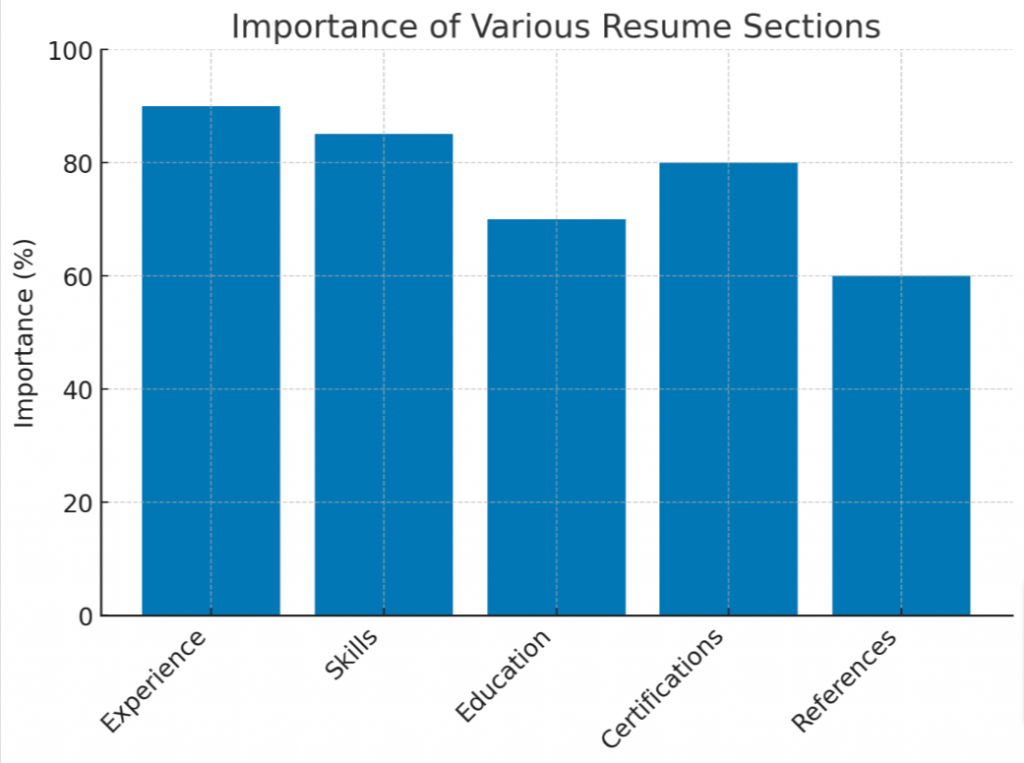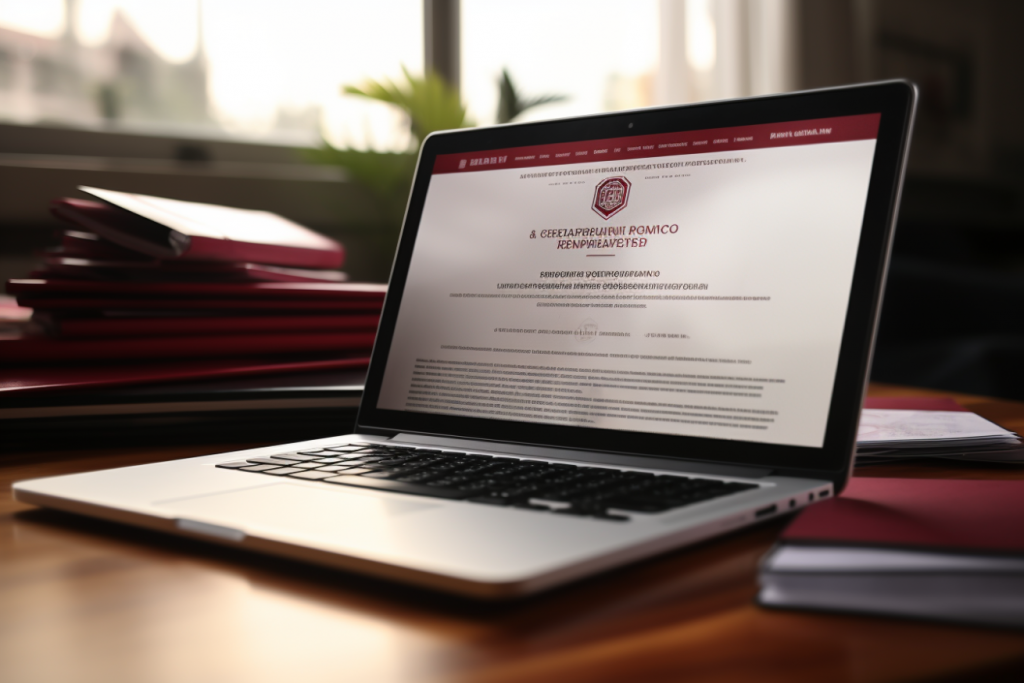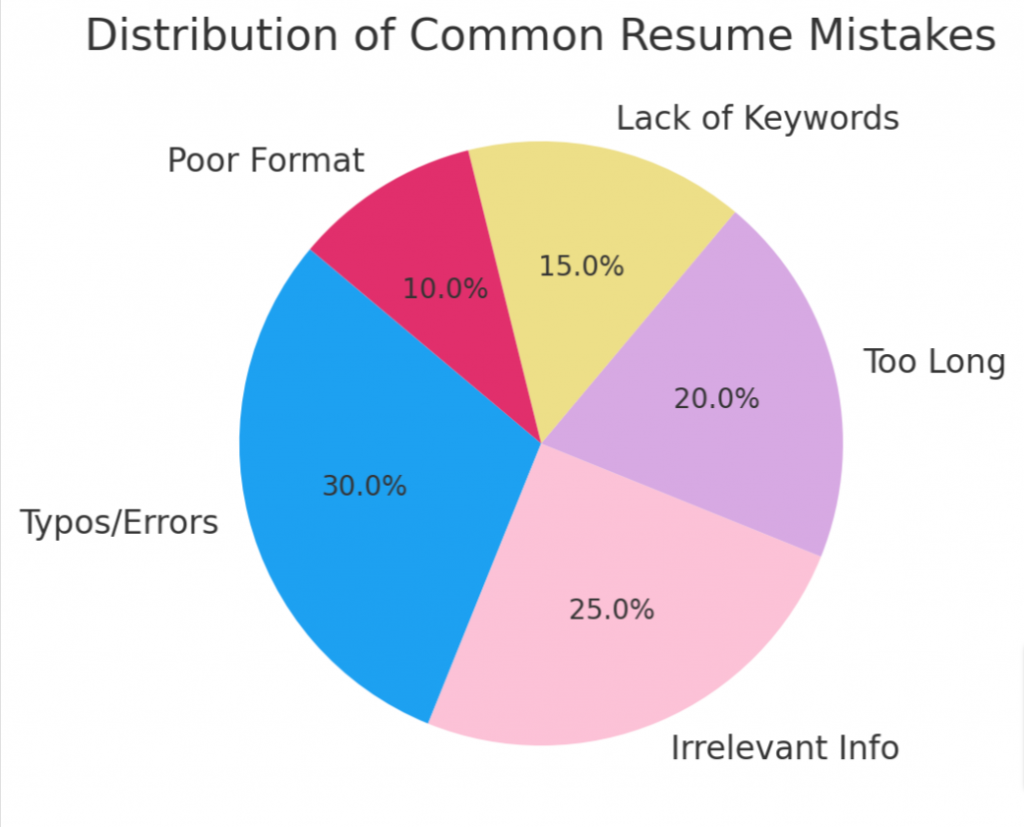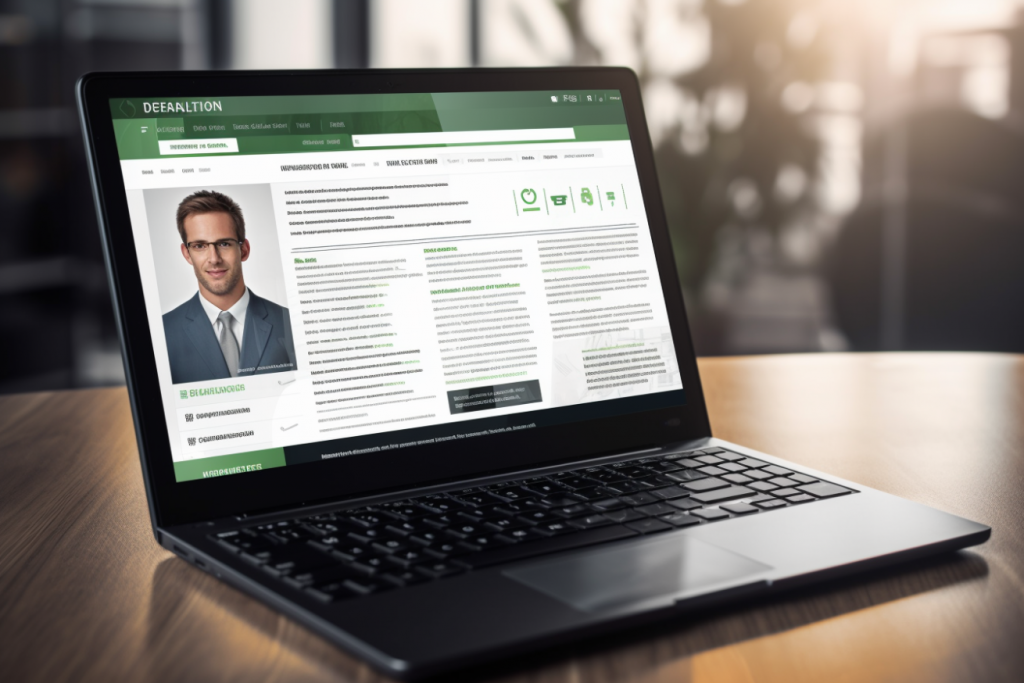Tailoring Your Resume: Securing Top Remote Social Media Positions
Introduction
In the rapidly evolving digital landscape, remote jobs have not only become more prevalent but also highly sought after. The allure of flexible hours, no commute, and the comfort of working from one’s own space has led many to transition from traditional in-office roles to remote positions. Among these, social media jobs stand out as especially fitting for remote work.
Given the inherently online nature of social media, it’s no surprise that many companies now offer remote opportunities for roles such as Social Media Managers, Content Creators, and Digital Marketing Strategists.
However, the application process for remote jobs often differs from that of in-office positions. Employers aren’t just looking for someone who can do the job; they’re looking for individuals who can thrive in a remote environment, demonstrating qualities like self-discipline, impeccable communication skills, and a proven track record of self-management.
As a result, crafting a resume tailored specifically for remote social media roles is crucial. This article will guide you through the nuances of building that perfect resume, ensuring you not only stand out but also highlight your readiness and aptitude for remote work. Whether you’re a seasoned social media pro or just starting out, these insights will arm you with the knowledge to make a lasting impression on potential employers.
Understanding the Unique Demands of Remote Social Media Jobs
The Role of a Remote Social Media Professional

In the digital realm, the role of a social media professional is dynamic and multifaceted. Their responsibilities often encompass content creation, audience engagement, campaign management, and performance analysis. When this role is executed remotely, the core tasks remain the same, but the way they’re approached might differ:
- Daily Tasks and Responsibilities: A remote social media professional might start their day by checking notifications across various platforms, responding to messages, and scheduling posts for optimal times. They’d collaborate with team members, attend virtual meetings, and constantly keep an eye on emerging trends and real-time feedback from their audience.
- Differences from an In-office Role: While the essence of the job remains consistent, remote professionals often enjoy more flexibility in structuring their day. However, they also face the challenges of working in isolation, ensuring they remain motivated, and setting boundaries between work and personal time.
Skills Required for Remote Work
Remote work comes with its own set of challenges, making certain skills and qualities indispensable:
- Self-discipline and Time Management: Without the structure of a traditional office, remote workers need to be disciplined in setting a routine, prioritizing tasks, and managing their time efficiently.
- Communication and Collaboration Tools: Familiarity with tools like Slack, Zoom, Trello, and Asana can be a significant asset. These platforms facilitate communication and collaboration, ensuring that remote teams stay connected and aligned.
- Adapting to Different Time Zones and Schedules: Remote social media roles often involve interacting with global audiences or collaborating with team members in different parts of the world. Being adaptable and understanding of various time zones is crucial to ensure seamless operations.
What Employers are Looking for
When hiring for remote roles, employers often prioritize certain attributes and experiences:
- Proven Track Record of Remote Work: If you’ve worked remotely before, even if it’s not in a social media capacity, it’s a testament to your ability to manage yourself and deliver results without constant oversight.
- Demonstrated Ability to Self-manage: Employers value candidates who can set their own goals, track their progress, and consistently meet deadlines without requiring constant check-ins.
- Strong Online Communication Skills: Given the lack of face-to-face interactions, being able to convey ideas, provide feedback, and collaborate effectively online becomes paramount.
In essence, while the core skills required for a social media role remain consistent, remote positions demand an added layer of adaptability, self-motivation, and communication prowess. Recognizing and highlighting these skills can set you apart in the competitive job market.
Structuring Your Resume for Maximum Impact
The Basics: Formatting and Length
Before diving into the content of your resume, it’s essential to address the foundational elements: format and length.
- Optimal Length for a Social Media Resume: While there’s no one-size-fits-all answer, a resume for mid-level professionals should ideally span two pages. For those just starting out or with fewer experiences, one page suffices. Remember, it’s about quality over quantity. Every item on your resume should serve a purpose and reinforce your suitability for the role.
- Importance of a Clean and Readable Format: Given that hiring managers often skim resumes, clarity is paramount. Use a professional font (like Arial or Calibri), maintain consistent formatting, and employ bullet points for easy reading. Additionally, ensure that sections like ‘Work Experience’, ‘Skills’, and ‘Education’ are easily distinguishable.
Highlighting Relevant Experience
Your work experience is often the heart of your resume, so it’s vital to present it effectively.
- Placing the Most Relevant Roles at the Top: While chronological order is common, if you’ve had a particularly relevant role in the past, consider using a hybrid format. This allows you to spotlight pertinent experiences at the beginning of the section, capturing the hiring manager’s attention immediately.
- Demonstrating Achievements, Not Just Responsibilities: Instead of merely listing tasks, focus on accomplishments. For instance, instead of saying “Managed company’s Twitter account,” you could specify “Grew company’s Twitter followers by 30% in six months through targeted campaigns.”
Tailoring Your Resume for Remote Work
To position yourself as an ideal candidate for a remote role, your resume should reflect remote-specific qualities and experiences.
- Emphasizing Past Remote Work Experience: If you’ve worked remotely in any capacity, highlight it. This demonstrates your ability to thrive in such environments.
- Mentioning Tools and Platforms You’re Familiar With: List collaboration and communication tools you’ve used, such as Slack, Zoom, or Google Workspace. This not only shows your readiness to integrate into a remote team but also reduces onboarding time for employers.
In the realm of remote social media roles, it’s not just about showcasing your expertise in social media. Equally important is illustrating your capacity to execute these skills effectively in a remote setting. By structuring your resume thoughtfully, prioritizing relevant experiences, and emphasizing your remote work readiness, you can make a compelling case for your candidacy.
Key Components to Include in Your Resume

Professional Summary
This is your elevator pitch, a concise introduction that provides an overview of your qualifications and what you bring to the table.
- Crafting a Compelling Introduction: Start with a powerful statement that encapsulates your experience and expertise. For instance, “Dedicated Social Media Specialist with over 5 years of experience driving engagement and growth across multiple platforms. Proven ability to work effectively in remote settings, with a keen eye for emerging digital trends.”
- Mentioning Your Remote Work Readiness: Within your summary, subtly highlight your affinity for remote work. Phrases like “experienced in virtual collaboration” or “adept at remote project management” can signal your comfort with remote roles.
Work Experience
Your professional journey tells a story, and the way you present it can make all the difference.
- Using Action Verbs and Quantifying Achievements: Start each bullet point with a strong action verb, such as “orchestrated,” “engineered,” or “cultivated.” Whenever possible, use numbers to illustrate your impact. For example, “Spearheaded a content strategy that boosted website traffic by 40% in three months.”
- How to Present Freelance or Gig Work: If you’ve taken on freelance projects or short-term gigs, group them under a ‘Freelance Social Media Consultant’ title, followed by bullet points detailing significant projects or achievements. This approach avoids clutter and presents freelance work as a cohesive part of your career.
Skills and Certifications
This section showcases your technical prowess and any formal recognitions you’ve earned.
- Listing Relevant Social Media Platforms and Tools: Highlight platforms you’re proficient in, such as Instagram, Twitter, LinkedIn, and Pinterest. Also, include tools like Hootsuite, Buffer, or Sprout Social that aid in social media management.
- Any Remote Work Certifications or Courses: If you’ve undertaken courses on remote work, digital communication, or any other relevant training, list them here. Certifications, even if they’re from online platforms like Coursera or Udemy, can add weight to your resume.

Education and Training
Your formal education and any additional training can further reinforce your qualifications.
- Highlighting Relevant Degrees or Coursework: While many social media roles prioritize experience over formal education, if you have a degree in Marketing, Communications, or a related field, it’s worth mentioning. If your degree isn’t directly related, any relevant coursework or projects can also be highlighted.
- Continuing Education in Social Media and Digital Marketing: The digital world is ever-evolving. Courses or workshops you’ve attended recently can showcase your commitment to staying updated and honing your skills.
Personal Projects or Portfolio
A testament to your passion and skills, personal projects can set you apart.
- Demonstrating Personal Brand or Campaigns: Perhaps you’ve grown your own Instagram account significantly, or you run a successful blog. These endeavors illustrate your hands-on experience and can be as valuable as formal roles.
- Importance of an Online Presence: Consider adding links to your LinkedIn profile, personal website, or portfolio. This allows potential employers to see your work firsthand, offering a more comprehensive understanding of your capabilities.
Each component of your resume offers an opportunity to showcase a different facet of your qualifications. From your professional journey to your skills and personal projects, every section should be meticulously curated to reinforce your suitability for a remote social media role.
Common Mistakes to Avoid on Your Resume

Being Too Vague or Generic
In a competitive job market, generic statements can cause your resume to fade into the background.
- The Importance of Specificity: Instead of broad claims like “experienced in social media,” delve into specifics such as “proficient in crafting LinkedIn ad campaigns targeting B2B audiences.” Specifics paint a clearer picture of your expertise and make your resume more memorable.
- Avoiding Clichés and Buzzwords: Terms like “team player,” “hard worker,” or “go-getter” are overused and have lost their impact. Focus on tangible skills and experiences that set you apart.
Overlooking the Cover Letter
While the resume is critical, the cover letter provides a platform to tell your story and connect on a more personal level.
- Crafting a Cover Letter for Remote Roles: Use this space to delve deeper into your passion for remote work. Perhaps you’ve thrived in such settings in the past or value the work-life balance it offers. Sharing these insights can resonate with employers.
- Demonstrating Cultural Fit and Alignment with Company Values: Research the company’s ethos, values, and culture. Drawing parallels between the company’s values and your own can illustrate not just your suitability for the role, but also your potential fit within the organization.
Not Proofreading
Minor errors can cast a shadow on an otherwise stellar resume.
- The Risks of Typos or Grammatical Errors: Such mistakes can give the impression of carelessness or lack of attention to detail. In roles like social media where every post or tweet is public-facing, precision is crucial.
- Getting a Second Pair of Eyes or Using Editing Tools: After spending hours on your resume, you might become blind to small errors. Consider asking a friend or colleague to review it, or utilize tools like Grammarly to catch and correct mistakes.
In the pursuit of crafting the perfect resume, it’s easy to overlook common pitfalls. By being aware of these frequent missteps and actively addressing them, you can ensure that your application reflects the best version of your professional self.
Leveraging Online Platforms for Your Job Search
Building a Strong LinkedIn Profile
In today’s digital age, your online presence can be as impactful as your resume. LinkedIn, being a professional network, is especially significant.
- Tailoring Your Headline and Summary for Remote Social Media Roles: Your LinkedIn headline is often the first thing people see. Instead of a generic “Social Media Specialist,” consider “Remote Social Media Strategist with 5+ Years Driving Global Campaigns.” Your summary can further delve into your passion and expertise in remote roles.
- Asking for Endorsements and Recommendations: These serve as testimonials to your skills and professionalism. Reach out to colleagues or superiors from past roles and request them to vouch for specific skills or share their experience working with you.
Engaging on Social Media Platforms
Your activity on social platforms can showcase your expertise and enthusiasm for the industry.

- Sharing Industry News and Insights: Regularly posting or commenting on the latest trends, tools, or strategies not only demonstrates your active involvement but also positions you as a thought leader.
- Networking with Professionals in the Field: Engaging with industry leaders, joining relevant groups, and participating in discussions can expand your professional network and open doors to unadvertised job opportunities.
Using Job Boards Specialized in Remote Roles
With the rise of remote work, several job boards cater specifically to such positions.
- Navigating Platforms like Remote.co, We Work Remotely, and FlexJobs: These platforms curate remote job listings from around the world, making your job search more streamlined and efficient.
- Tips for Standing Out in a Competitive Field: Given the appeal of remote roles, many of these listings receive numerous applications. Customizing your application for each position, showcasing any previous remote work experience, and displaying a genuine connection to the company’s mission or product can set you apart.
Incorporating online platforms into your job search strategy can significantly amplify your reach and visibility. By actively engaging, networking, and leveraging specialized job boards, you can access a broader spectrum of opportunities and position yourself as a top contender for remote social media roles.
Conclusion
The digital landscape has reshaped the way we work, with remote roles becoming an integral part of this transformation. Social media jobs, given their intrinsic online nature, are particularly conducive to this remote work paradigm. However, securing a coveted remote position requires more than just showcasing your expertise in social media. It demands a demonstration of your ability to excel in a remote environment, characterized by self-discipline, impeccable communication, and adaptability.
By meticulously crafting your resume, emphasizing your remote work readiness, and leveraging online platforms, you not only enhance your visibility but also position yourself as an ideal candidate in a competitive field. As the world continues to embrace remote work, equipping yourself with a tailored resume can be the key to unlocking exciting opportunities in the realm of social media.
Remember, your resume is more than just a document; it’s a reflection of your professional journey. By investing time and effort into its creation, you pave the way for a rewarding career in remote social media roles. Whether you’re an industry veteran or just starting out, the insights shared in this article aim to guide you towards crafting a resume that resonates, captivates, and Navigating the world of remote social media roles can be challenging, but with the right resources at your fingertips, you can equip yourself with the knowledge and skills to thrive. Below is a curated list of resources that can further assist you in your journey: ultimately, secures that dream role.
Additional Resources
Online Courses for Remote Work Readiness:
- Coursera: “Remote Work Foundations” – This course delves into the nuances of remote work, offering insights into effective communication, time management, and more.
- LinkedIn Learning: “Working Remotely” – A comprehensive guide to setting up a productive workspace, managing your time, and collaborating in virtual teams.
Books on Digital Marketing and Remote Work:
- “Jab, Jab, Jab, Right Hook” by Gary Vaynerchuk: A deep dive into the world of social media marketing, offering actionable strategies for various platforms.
- “Remote: Office Not Required” by Jason Fried and David Heinemeier Hansson: A compelling read on the benefits, challenges, and best practices of remote work.
Links to Popular Remote Job Boards and Platforms:
- Remote.co: A platform dedicated exclusively to remote job listings across various industries.
- We Work Remotely: One of the largest remote job listing sites, offering opportunities from startups to established companies.
- FlexJobs: A platform that curates flexible and remote job opportunities, ensuring that each listing is legitimate and scam-free.
Social Media Tools and Platforms:
- Buffer: An intuitive social media management tool ideal for scheduling, publishing, and analyzing social media posts.
- Canva: A user-friendly design tool, perfect for creating captivating social media graphics.
- Sprout Social: An all-in-one platform that offers social media publishing, analytics, and engagement tools.
The realm of remote social media jobs is expansive and continually evolving. By tapping into the resources listed above, you can stay ahead of the curve, continually hone your skills, and position yourself as a top contender in the industry. Whether you’re seeking courses, books, job platforms, or tools, this list aims to be a starting point in your quest for excellence.

